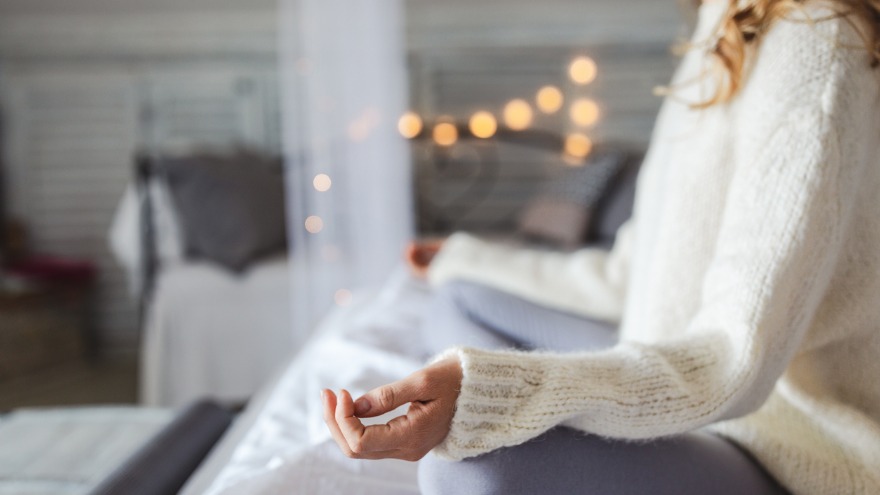We finally made it to November’s turkey—but you’ve no doubt noticed there’s still a pandemic going on out there. Whether it’s making tough decisions about the risk of traveling and seeing family or reorienting to a work-home balance—with Christmas lights in the background—there are new seas to navigate this winter. keep calm
What better time to round up advice for alleviating the stressors that flow from the new normal?
Tips from a Performance Coach
Katie Sandler is a personal development coach with a degree in mental health counseling. She thinks mindfulness is key this holiday season to reducing feelings of stress and worry, especially for travelers. “The holidays are a special time, and most of us still want to travel,” Sandler said. “While we shouldn’t live in constant fear of the virus, we should stay keenly aware of the situation and our surroundings.”
More: 3 Mindfulness Mantras
Sandler’s heightened awareness spans risk mitigation to choosing the subject of your focus if something does not go just as planned. Here are her tips for doing just that.
- Forget being spontaneous. Plan ahead as much as possible to reduce risk, including making reservations for everything beforehand. This is obvious for travel—but also important for anything from visiting restaurants to going on excursions.
- Know the rules and regulations. COVID rules differ by city and state, so be prepared. Whether it’s mandatory mask usage everywhere, imposed quarantine after travel, or a limit to the number in your party, you’ll be more at ease with no surprises.
- Get tested before you go. Getting a COVID test before you travel is a good way to reduce stress as well as the virus’ spread—and you’ll have the peace of mind of knowing you’re starting off with a clean slate.
- Make lists. You may not be a regular list maker, but these are different times. Whether the place you’re traveling to has unfamiliar protocols or you’re the one who forgets your mask when you go out, find solace in good old pen and paper and make a list pre-travel. Even if you never look at it again, the security of knowing you sat down and thought it all through will help put you at ease.
- Be patient! Everyone around you is in the same boat—not to mention that those working in the airport and for open businesses don’t have the luxury of doing so from home. Remind yourself of this when hiccups occur or if service is slower than usual. Use it as an exercise in mindfulness—rather than snap-reacting, take a deep breath and direct your focus to something pleasing about the situation or your surroundings.
Alleviate Anxiety, Armed with Science
 Whoop is an app tracker used by many pro athletes that specializes in heart-rate data and sleep assessment to give you an overall picture of your body’s adaptability to stressors (from exercise to alcohol consumption) and offers a day-by-day recovery score. The company’s blog also tackles a number of relevant health and lifestyle topics, including understanding anxiety.
Whoop is an app tracker used by many pro athletes that specializes in heart-rate data and sleep assessment to give you an overall picture of your body’s adaptability to stressors (from exercise to alcohol consumption) and offers a day-by-day recovery score. The company’s blog also tackles a number of relevant health and lifestyle topics, including understanding anxiety.
The blog states: “Our bodies send us signals every day. How we deal with them to a large degree dictates our mental and emotional well-being. When it comes to anxiety, identifying, interpreting and thoughtfully channeling the signals your body is sending you can help you feel in control and help you deal with feelings of stress in a productive way.”
Whoop specialists recommend mindfulness, too. When activated, the sympathetic nervous system—which you’ve probably heard referred to as the “fight or flight” response—tells the body to react to a perceived threat. This was helpful back when we had to run from saber tooth tigers, but it’s unhealthy for the body to stay in this heightened state of emotion.
Recognizing that frustrated, anxious and irritated feelings stem from a biological response is already one step toward making a choice to switch your focus. When you know your body is merely trying to protect itself from harm, you can make a conscious choice.
Whoop also recommends channeling the energy into something productive—like setting yourself to a task or taking a brisk walk to bring yourself back to the stable equilibrium known as homeostasis.




